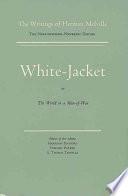
Source: White-Jacket (1850), Ch. 93
Context: The worst of our evils we blindly inflict upon ourselves; our officers cannot remove them, even if they would. From the last ills no being can save another; therein each man must be his own saviour. For the rest, whatever befall us, let us never train our murderous guns inboard; let us not mutiny with bloody pikes in our hands. Our Lord High Admiral will yet interpose; and though long ages should elapse, and leave our wrongs unredressed, yet, shipmates and world-mates! let us never forget, that, Whoever afflict us, whatever surround, Life is a voyage that's homeward-bound!
